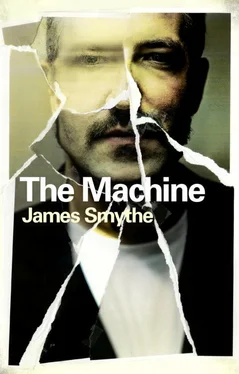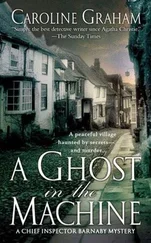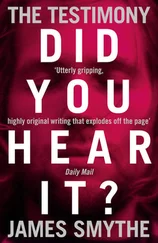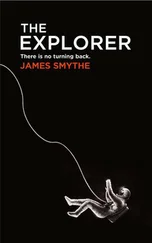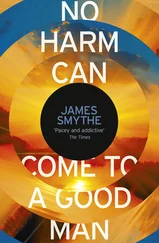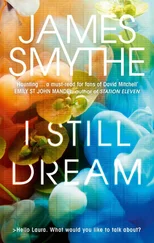All right, love. He rocks back onto the heels of his shoes, then to his toes, stretching up to see over the crowd.
What happened? she asks him. She wonders if she is just establishing an act or genuinely wants to know what they’ve found. As if maybe last night could have been a dream.
They got a body down there, he says. Washed up or something. Some kid from the estate. Apparently it was the little one, he says. You know the one I mean?
I don’t know, Beth says. She pictures him, and his glare and his scar. There were lots of kids there.
Right, right. Fucking hell, though. They found him because of the seagulls, that’s what I heard. Because they were all around this morning, pecking away. What a way to go.
Beth feels sick. She clings to herself to keep it in. The smell of the salt and the sea, and the breeze – such a slight breeze, but it’s there – coming from the front, and she’s glad she can’t see it or smell it. And then there’s a sudden commotion: and walking backwards up the stairs a paramedic, holding onto one part of a stretcher. Beth wonders, for a second, if the kid’s alive, but then she sees the thick black rubber of the body bag that lies on it, and she thinks of a maggot: the loose skin, and inside it something worse, soaked in filth, a developing fly, waiting to emerge and reproduce itself. The paramedics ask the crowd to step back, and wind their way to the ambulance, and they open the door and slide the body into the back.
Where are his parents? asks Beth.
Doesn’t have any, that’s what I heard. The waiter cranes his neck to see. Apparently lived on his own up there.
What?
Dad’s recently been banged up, that’s what somebody said. Mum’s gone, or dead. She isn’t around. Lives by himself. Always gave me all that shit, always having arguments with me, he was, and now he’s dead. There’s something conspiratorial about the way that he says it, as if what he really means is, Don’t tell the police that I argued with them, and I won’t tell them that you did. Fucking hell, he says, and he laughs. This’ll do wonders for the tourism, eh?
Beth gets back to her flat just as the policemen are talking to the fat neighbour. She’s out on her doorstep, mopping at her eyes – did everybody know the boy? – and the children are all around her, running up and down. She stares at Beth as she passes, and one of the policeman is nodding his head. Beth opens the door to the flat. Vic is awake: sitting on the end of the bed.
They think I live alone, she says. So stay here, stay quiet. Just let me talk to them.
Who’s they?
The police. They’re doing interviews. She doesn’t look at him. She drinks water and takes headache tablets, and then steps outside, pulling the door shut behind her. They’re still with the neighbour, so she heads to the railing and looks over it. She tries to make this feel as casual as possible. Nothing to it. To her this is a normal day, only one loaded with intrigue. She thinks she should ask questions. That’s probably what somebody who knows nothing would do.
They thank the neighbour – the one who did most of the talking puts his hand on her arm and tells her to call if she thinks of anything – and they turn to Beth. The consoler consults his sheet.
Mrs McAdams?
Beth, please. She holds out her hand to shake theirs: her palm hot, her whole body hot. They shake it, but don’t tell her their names.
Mind if we ask you some questions?
No, sure. Sure.
You know what’s happened?
I saw the crowd down there, and the flat opposite, obviously. They said that there was an accident?
One of the boys who lives on the estate has died. Did you know him? They bring out his picture and hold it up. Oliver Peacock, the officer says. Went by Olly. The picture has him smiling. It’s a few years old, taken when he was still at school. He’s so young. Grinning, because he’s a kid and he was told to, and it was school-photograph day. He’s in a uniform from her school, tie done up, shirt buttoned, not quite posing.
I teach at his school, Beth says.
You know him?
No. I mean, I’ve seen him around here. Not in school.
He was excluded earlier this year.
Oh.
But you’ve seen him on the estate.
A few times.
The other officer speaks finally. We’ve heard some reports about trouble he caused. Ever give you any? he asks.
Beth thinks about lying completely, but plays along. He shouted things sometimes, she says.
What sort of things?
Names. You can imagine, kids’ stuff.
Do you know where he used to hang around? The things he used to get up to?
By the shops. They hung around there a lot. And he used to jump off the point with his friends.
The point?
Suicide point. They would jump out and into the water. The police look at each other. They close their notebooks, and one pulls a card from his pocket.
You’ve been really helpful, he says. He hands her the card: his name, his telephone numbers. Anything else you think will help, give me a bell, okay?
And then they’re gone. Vic appears from the bathroom as Beth steps inside the flat again.
Is it okay? he asks.
It’s okay, she says. She checks her phone. Another message from Laura.
BETH PLEASE DON’T DO THIS ALONE YOU DON’T KNOW WHAT PEOPLE ARE CAPABLE OF WHEN THEY ARE GODLESS.
I don’t know what we do now, she says to Vic.
Laura’s next text arrives at almost exactly the same time as the banging on the door, and Beth reads the text as she opens the door, thinking that it might be the police. They left the estate the night before, taking the cordon away from his flat and getting the landlord – who owns so many of these flats – to lock the door, but Beth’s on edge, convinced that they’ll reappear and intrude and make guesses, and want to ask her more questions. So she opens the door without looking, clearing the text message – WE HAVE TO TALK, PLEASE – and it’s Laura herself.
I thought this was easier, Laura says. To just come around and see you, because then you would know I was serious, Beth.
Because your last visits didn’t give that impression? Beth asks. She sighs. Please go away, she says, and she shuts the door, but Laura puts her hand out, between the door and the frame. She braces but Beth stops it shutting. Don’t do this, Beth says.
You’ve messed with things that you don’t understand, Beth. Don’t you see that? Don’t you see that it’s not yours to play God?
I didn’t play God, Beth says.
He’s in there with you still, isn’t he. It isn’t a question.
I’m on my own. Laura pushes the door slightly and peers past Beth. He’s in the spare bedroom: waiting there until she gives the all-clear.
Where do you keep him?
I don’t keep him anywhere, Beth says.
He isn’t right, is he? I know about it, you know. Back when they used it on people with dementia, they weren’t right either. That’s why they stopped it: people left wrong and vacant, you know that.
You don’t know what you’re talking about, Beth says, but she can even hear it in herself: that there is something wrong. The Vic she loved would never have done what he did. And it’s true: the dementia cases remembered things wrongly sometimes. A hazard of the treatment, they said. Better than the alternative, they said.
Laura shuts her eyes. Lazarus rose from the dead, because he was touched by the son of God, she says. Jesus healed the sick and the lame: Jesus, not the physicians, not the doctors. He could heal mankind, body and soul, Beth. Don’t you see?
There’s something insistently pleading about this, Beth thinks. Histrionic as it is, her performance is almost convincing.
Can that thing heal the soul, Beth? Or does it replace it with something much weaker? Laura leans in towards the door. Oh Beth, we were friends, we were. I could feel it. You’re better than this.
Читать дальше
Конец ознакомительного отрывка
Купить книгу
